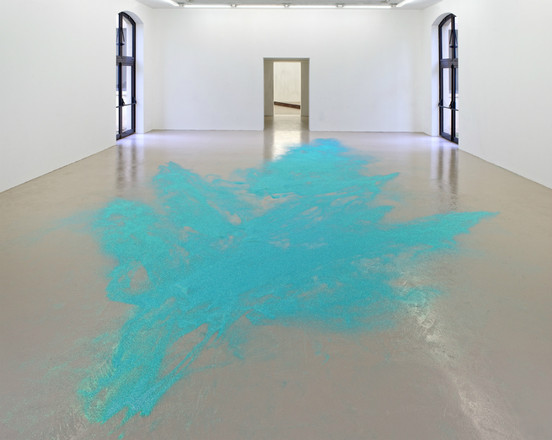For the spring of 2017, the Institut d’art contemporain will present a large-scale solo exhibition of Ann Veronica Janssens’ work. The entire space will be dedicated to new pieces referring to existing works.
Ann Veronica Janssens bases her work on the act of perception, developing an experimental research through the prism of physical phenomena such as light, colour, sound, or mist. Using stripped-down gestures, the artist activates ‘undefined zones’ between blindness and revelation. These gestures seek to render manifest the indefinable and transitory nature of the very material of reality. Duration, space, and movement determine their primordial conditions.
The recurrent interrogations embodied by this half-sculptural, half-pictorial oeuvre have led the IAC to dedicate an exhibition to this artist, building upon her solo exhibitions at the [mac] in Marseille (2004), the Wiels in Brussels (2009), and the Nasher Sculpture Center in Dallas (2016).
A co-founder, with Nathalie Ergino, of the Laboratoire Espace Cerveau, Ann Veronica Janssens has worked closely with the IAC for many years. Since 2009, the Laboratoire, a transdisciplinary research facility, has explored practical and theoretical research arising from the field of artistic experimentation, bringing together space, time, body, and brain.
This privileged relationship has given rise to a unique and chronologically extensive collaboration, through the constitution of a constantly-evolving corpus of artworks: the Cabinet en croissance (Developing Cabinet).
This grouping brings together prototypes, regularly completed and updated by the artist, with new experiments added in their turn to the IAC collection.
Starting from the experimental practice, the IAC exhibition will offer insights into the different perceptual registers of Ann Veronica Janssens’ works. From immersive environments, like her first mist work, MUHKA, Anvers (1997), to the glitters series (2016), in which the floor is re-appropriated as an underlying but integral surface, space is revealed under a multiplicity of spectra by means of tenuous processes. Sometimes artificial, sometimes natural, light creates, in the midst of these works, a breakthrough, an escape towards the sky.
This exhibition invites us – through the experience of losing our bearings, through contemplation – to apprehend our environment free of conditioning, to let go and become one with the elements.
The recurrent interrogations embodied by this half-sculptural, half-pictorial oeuvre have led the IAC to dedicate an exhibition to this artist, building upon her solo exhibitions at the [mac] in Marseille (2004), the Wiels in Brussels (2009), and the Nasher Sculpture Center in Dallas (2016).
A co-founder, with Nathalie Ergino, of the Laboratoire Espace Cerveau, Ann Veronica Janssens has worked closely with the IAC for many years. Since 2009, the Laboratoire, a transdisciplinary research facility, has explored practical and theoretical research arising from the field of artistic experimentation, bringing together space, time, body, and brain.
This privileged relationship has given rise to a unique and chronologically extensive collaboration, through the constitution of a constantly-evolving corpus of artworks: the Cabinet en croissance (Developing Cabinet).
This grouping brings together prototypes, regularly completed and updated by the artist, with new experiments added in their turn to the IAC collection.
Starting from the experimental practice, the IAC exhibition will offer insights into the different perceptual registers of Ann Veronica Janssens’ works. From immersive environments, like her first mist work, MUHKA, Anvers (1997), to the glitters series (2016), in which the floor is re-appropriated as an underlying but integral surface, space is revealed under a multiplicity of spectra by means of tenuous processes. Sometimes artificial, sometimes natural, light creates, in the midst of these works, a breakthrough, an escape towards the sky.
This exhibition invites us – through the experience of losing our bearings, through contemplation – to apprehend our environment free of conditioning, to let go and become one with the elements.


